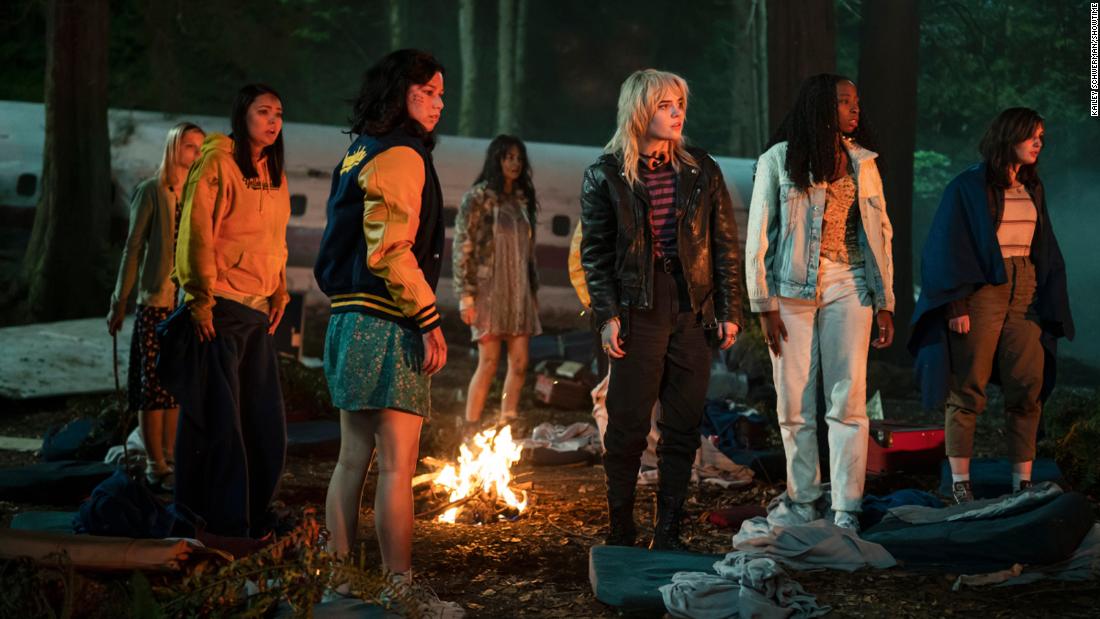(CNN)After spending much of the past two years working on CNN's documentary series "History of the Sitcom," I think I can finally offer an answer on what defines the genre.
But that answer is: Who knows?
It's a cop-out answer, like Potter Stewart's when he talked about obscenity: I know it when I see it.
Yes, "I Love Lucy" is a sitcom. So are "The Honeymooners"; "All in the Family"; "Cheers"; "The Cosby Show"; "Seinfeld"; and "Friends."
But so too are "Leave It to Beaver;" "Bewitched;" "MASH;" "The Office;" "Parks and Rec;" and "Curb Your Enthusiasm."
No one would really question the sitcom bonafides of any of those iconic shows. Except if you played episodes from the first group next to episodes of the second, and asked an alien lifeform (other than Mork) who had never seen anything like this type of entertainment if these were examples of the same thing, the answer might be (translated from the Klingon):
"Of course not. The first group is clearly shot with multiple cameras in front of a live audience, rather like a Noël Coward play created for a theater. The second group are clearly little movies, shot by a single camera with either pumped-in laughs produced by a machine, or no accompanying laughter at all, like a Billy Wilder film created for a movie house."
And then if you upped the ante by unveiling episodes of "Girls," "Insecure," "Atlanta," and "Fleabag," the response -- after the alien's antennae had exploded -- would be along the lines of: "Do you people try to make comedy out of everything?"
But those newer shows, just like the aforementioned classics, are all part of the sitcom's evolution. For the "History of the Sitcom" docuseries, the decision of what to include fell along one basic line: If the overarching purpose of the show is to make you laugh, it can be considered a sitcom. And in almost all cases, the shows are half-hours rather than hours.
That's not to say "History of the Sitcom" is definitive. "Eight Is Enough" made the cut for us. So did "The Love Boat" (although I personally have reservations about that one because I don't remember ever actually laughing at it, but you can't miss the show's intent to be funny because it douses itself in endless laugh-track hints). Yet "Ally McBeal," which won the Emmy for Outstanding Comedy series in 1999, did not. No documentary series could include references to every example of a sitcom in history -- unless it ran 800 hours instead of eight -- but this is also subjective.
One reason why the boundaries of this format are so blurry is because most viewers still have a specific image that comes to mind when you mention this genre: It's the multi-camera show, shot with a live audience, using the same basic set (usually involving a couch) that's undeniably a "sitcom."
It's also a genre that includes lots of formal jokes -- that is, someone does a set-up and another character lands the punchline. The audience laughs, but the characters don't.
That's the classic "situational comedy" format. It is also the one responsible for generating a large proportion of the most successful shows in television history, the ones that proved their artistic (and commercial) merit by being watched and loved by generation after generation.
"I Love Lucy," though not the first sitcom (several had been on before its premiere in 1951), has and will run forever. "The Honeymooners" made only 39 episodes, but they are timeless. More recently, "Seinfeld," "Friends" and "The Big Bang Theory" were not only top-rated shows during their first run, but they also became massive successes in syndication, first on cable channels and eventually streaming services.
The classic sitcom tends to have extraordinary longevity, I think, mainly because of that heavy joke content. There are a lot of laughs in the best multi-camera shows, usually fired off every 30 seconds or so. And certainly some single-camera shows are so funny that they too have stood the test of time, with "Modern Family" and "The Office" being recent examples.
But that rapid-fire comedy form has fallen out of favor, mainly with writers. (Obviously viewers still love them because those re-runs tend to be high-performers on streaming platforms.) While many contemporary streaming half-hours are terrific television shows ("Russian Doll"), they're not eliciting much in the guffaw department.
They are admired, though, far more than most sitcoms are. Once you get past the roster of the truly great sitcoms, respect for the genre tends to diminish. The worst thing any movie critic can say to dismiss a new comedy film is: "It plays like a sitcom." They don't mean it plays like "Frasier," which would imply "frequently hilarious," but that it plays like "Gilligan's Island," which implies formulaic and silly. The critical sniffing at the "sitcom" also accounts for some of the reluctance to apply the label to contemporary comedies like "Hacks" or "Barry."
So, as I said: "Who knows?"
What is clearly part of the definition of a sitcom is that it encompasses both the hilarious and the silly, along with the off-putting and the moving; the superficial and the incisive; the forced and the inventive.
It's a flexible, dynamic art form, which defies limitation -- or easy description.
But I know it when I see it.







 English (US) ·
English (US) ·